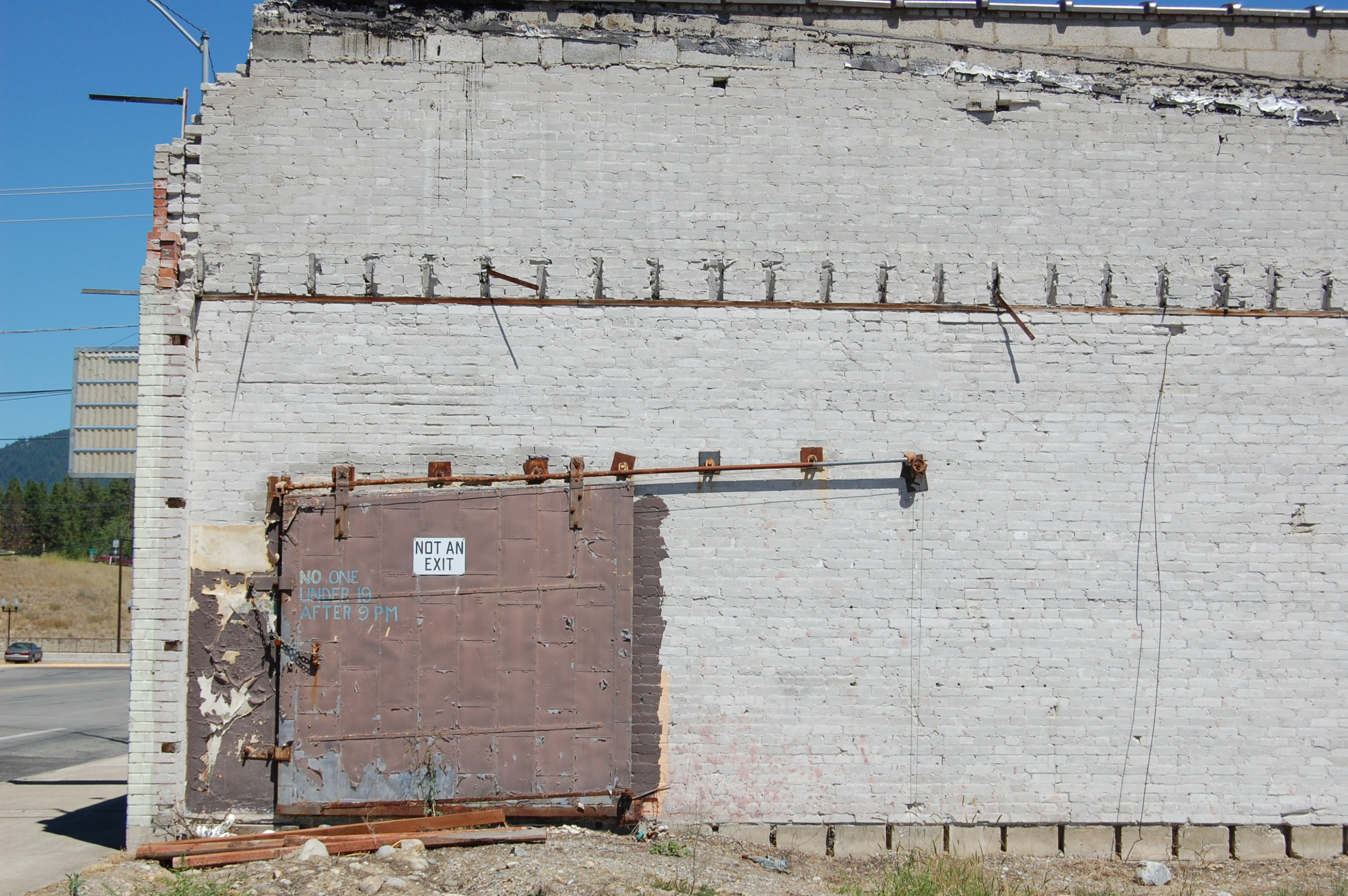
The people of Libby, Montana are still waiting for the good jobs to come back to their town, the county seat for Northwest Montana’s Lincoln County, where the downturn of the past decade hit hard and the rate of recovery has been glacial. A town settled by fur traders and gold miners more than 100 years ago, Libby has always been a community reliant on the natural resources of a rich landscape, but it’s been more than 25 years since the vermiculite mine closed down, the lumber mill quiet for nearly as long, and some of the new industries that might have revived this remote mountain town have not, due to various barriers, settled here. Libby presents a hostile business environment for companies looking to bring new ideas to a town so rooted in the past and so resistant to gentrification as to be self-sabotaging.
The downtown of my adopted town is a mixture of shops and businesses that have operated along Mineral and California Avenues for decades and a rotating cast of empty storefronts and new merchants. Most new ventures fail to establish a strong enough foothold to thrive in this sleepy downtown district bypassed by the majority of travelers who pass through Libby on Highway 2 heading east or west on the northern route across the states. The ones who remain are accustomed to making do with less.
In Libby, the cast-off belongings of others are a visible part of the local economy. Local entrepreneurs make a pittance reselling clothing, household items, and the occasional antique or vintage find in a cluster of shops along Mineral Avenue or in their yards, barns and garages at perpetual rummage sales. Still others are part of a robust online community offering items for sale via Facebook. Jeans, shoes, children’s clothing and almost anything else you can think of trade hands at arranged meeting places, often the parking lot of the local grocery store.
Last summer for the first time in many years a buzz of energy, commerce, and construction had returned to this town that has borne more than its share of hardship over the past two or more decades since the mill and the mines shut down. Building has resumed, the houses and yards in the downtown area have been spruced up, repainted, and many bear metal stars―a recent decorating trend that has caught on around here―and new outdoor seating areas or other upgrades. But the good jobs have not returned. The town struggles with the residue of departed industry, groundwater poisoned, soil contaminated, a designation of EPA Superfund Site that excluded Libby from the real estate booms that have enabled some Montanans to build wealth. New mining operations have been delayed or scuttled by efforts of environmentalists to stall devastation of natural habitat for endangered species and other wildlife.
Attempts by some local businesspeople and newcomers to rebrand Libby as a tourist and recreation destination are met with suspicion by old timers who don’t want to see Libby become like Whitefish or Seattle. They abhor the traffic jams and outrageous prices that have changed the character of nearby Flathead Valley and the signs of polish brought by residents relocating from Seattle. The establishment of a microbrewery in downtown Libby a few years back elicited vocal opposition and resistance from locals threatened by the idea of the proposed sidewalk seating area and upscale brew selection. More than one letter writer and social media poster expressed variations of the “Go back to Seattle” theme. Despite resistance, the establishment opened and thrived, bringing welcome signs of life to the downtown core that encouraged the opening of other nearby businesses, including the town’s first yoga studio. Whether Libby will be permanently spoiled by these additions remains to be seen.
Source Readings
Will Logging Ever Come Back to Libby, Montana?; Missoula Independent, June 28, 2012